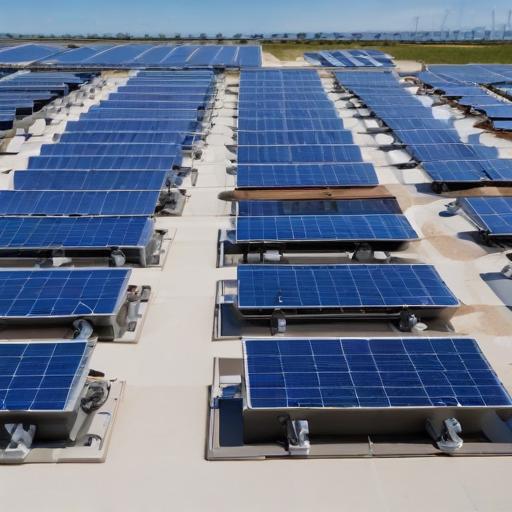Georgia Power is actively advancing its strategy to integrate battery energy storage systems (BESS) in response to the increasing demand for electricity. This initiative is part of the company’s broader transformation aimed at enhancing grid reliability and efficiency, fueled by recent regulatory approvals and accelerated project development.
Notably, the 2023 Integrated Resource Plan (IRP) has approved an expansion of 500 megawatts (MW) of BESS capacity under Georgia Power’s ownership, building on previous IRP cycles. Currently, 765 MW of new BESS projects are under construction at sites across the state, including Robins, Moody, Hammond, and McGrau Ford. These facilities are expected to come online between May and November 2026, while the additional 500 MW identified in the recent IRP is slated to enter the engineering, procurement, and construction (EPC) contracting stage with operations targeted by Winter 2027/28.
Georgia Power is strategically placing these storage systems next to existing substations and repurposing retired coal sites to optimize project development and minimize costs. This approach not only utilizes established infrastructure but also aims to streamline the path to commercial operation, thereby reducing development delays.
In terms of cost, early discussions regarding pricing for these utility-scale BESS projects suggest competitive turnkey prices ranging from $450 to $600 per kilowatt, significantly lower than earlier forecasts for 2025 systems. The trend is supported by incentives from the Inflation Reduction Act, which encourages domestic battery manufacturing and sourcing.
This growth in BESS capacity is occurring alongside Georgia’s ascent as a key player in the U.S. battery manufacturing landscape. The American Clean Power Association has announced a commitment to invest $100 billion in domestic grid batteries by 2030, which aligns with the state’s significant investments in electric mobility and related industries. Major players, including SK Battery America and a collaborative venture between Hyundai Motor Group and LG Energy Solution, underline Georgia’s strategic importance in the sector.
While there are inherent risks, such as potential policy changes affecting manufacturing incentives and supply chain challenges, Georgia’s proactive steps in establishing a reliable domestic supply chain and optimizing operational efficiencies position it well in the growing energy storage market.
In summary, Georgia Power is not only augmenting its energy production capabilities but also creating a supportive ecosystem for sustainable energy solutions, which could contribute positively to the state’s economy and energy independence. This initiative illustrates a promising move towards greener energy practices while addressing immediate capacity needs across the region.
